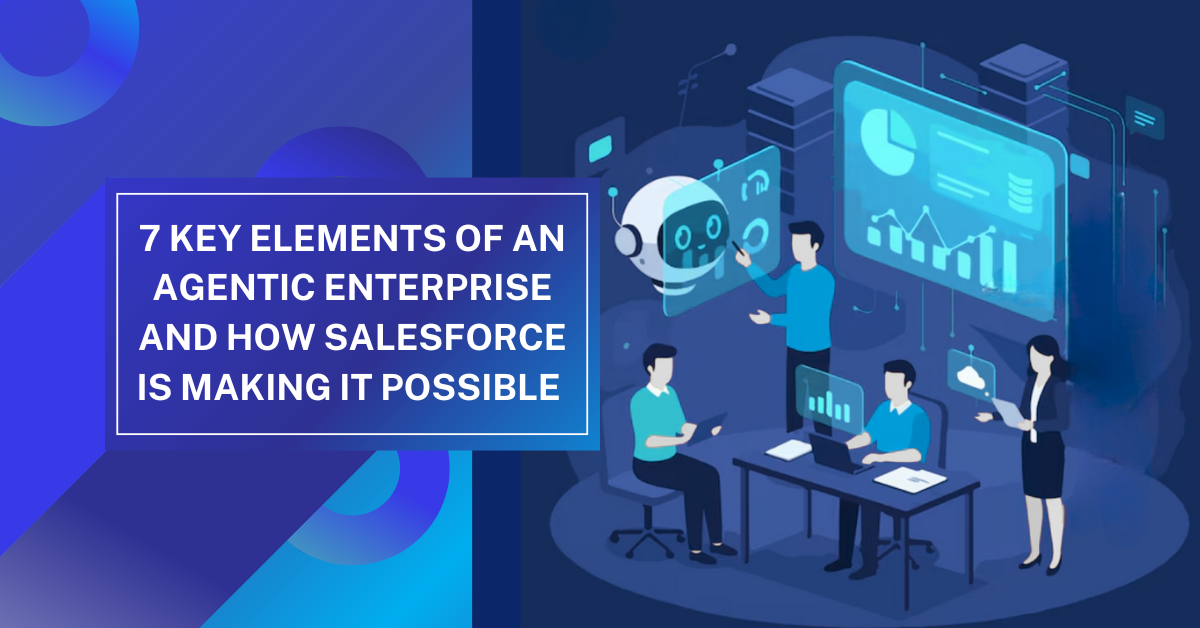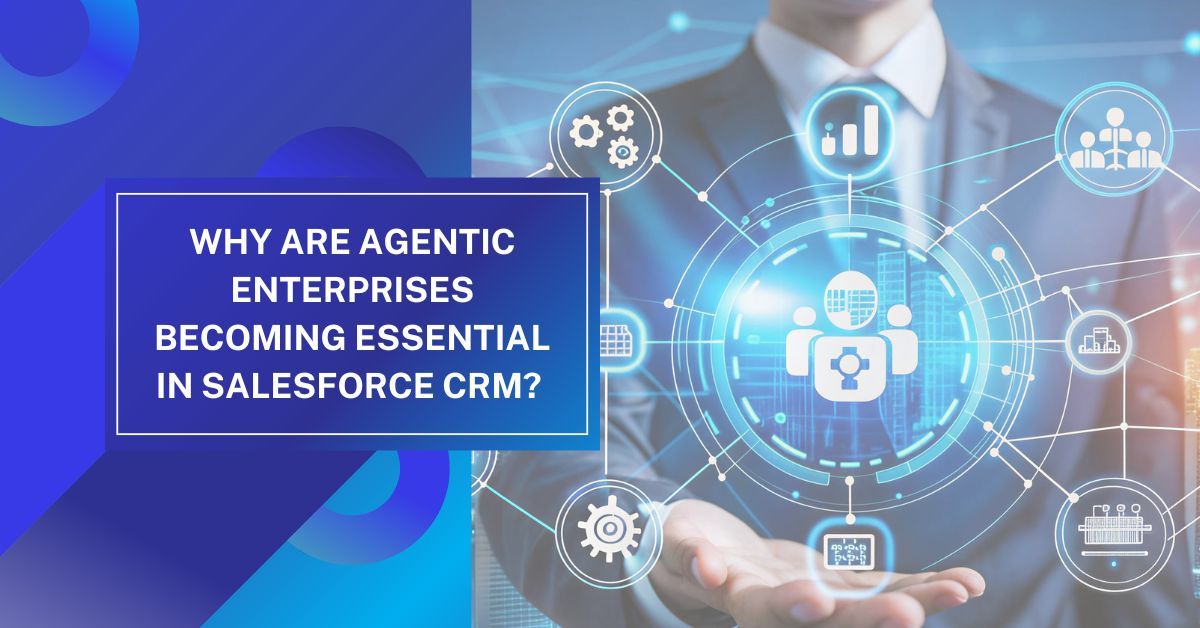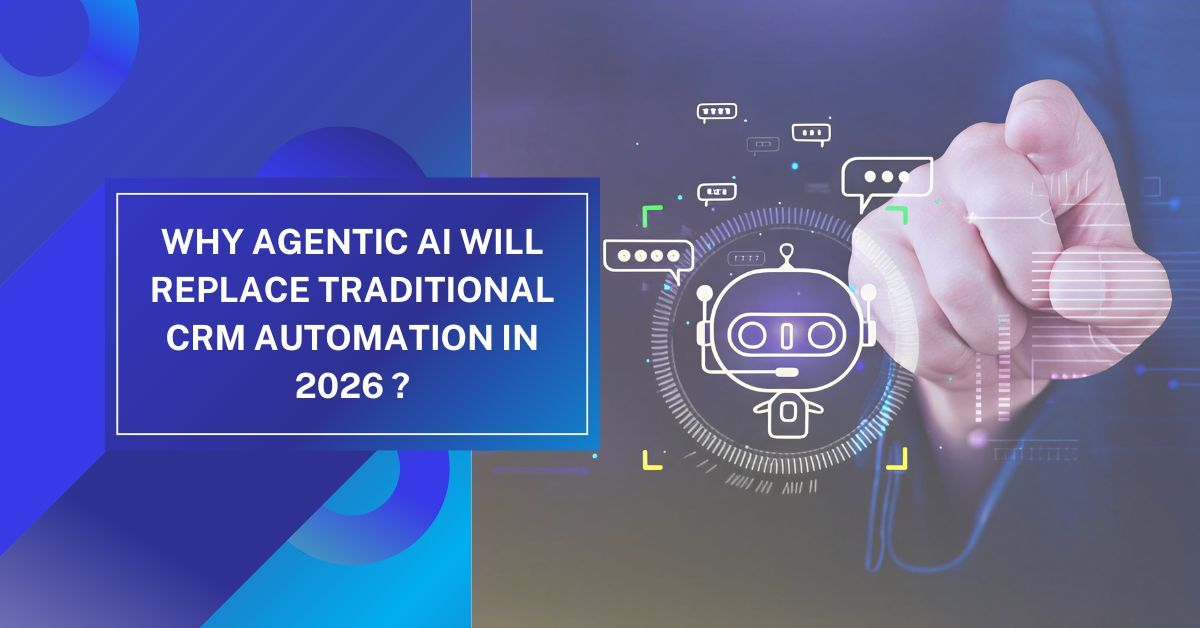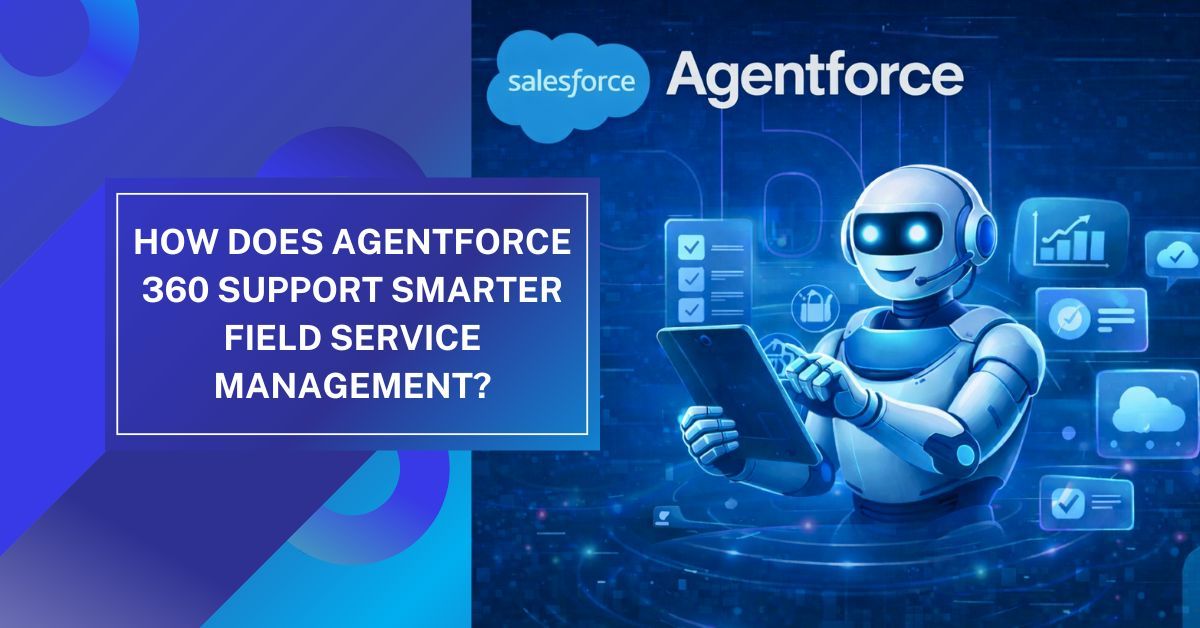The pace of business transformation has never been faster. From AI-driven insights to real-time automation, companies are under constant pressure to evolve ,not just to keep up, but to stay ahead. Traditional automation, which simply executes predefined tasks, is no longer enough. The modern enterprise needs technology that can understand context, make decisions, and act independently.
This is where the Agentic Enterprise comes in an organization designed around intelligent, autonomous AI agents that don’t just follow instructions but learn, adapt, and collaborate to drive outcomes. It’s a vision where systems communicate seamlessly; employees are empowered by AI, and data flows freely across every part of the business.
Why Agentic Enterprise Matters
In today’s fast-paced digital era, businesses can’t rely on basic automation alone. Success now depends on how intelligently an organization can sense change, adapt quickly, and act with precision.
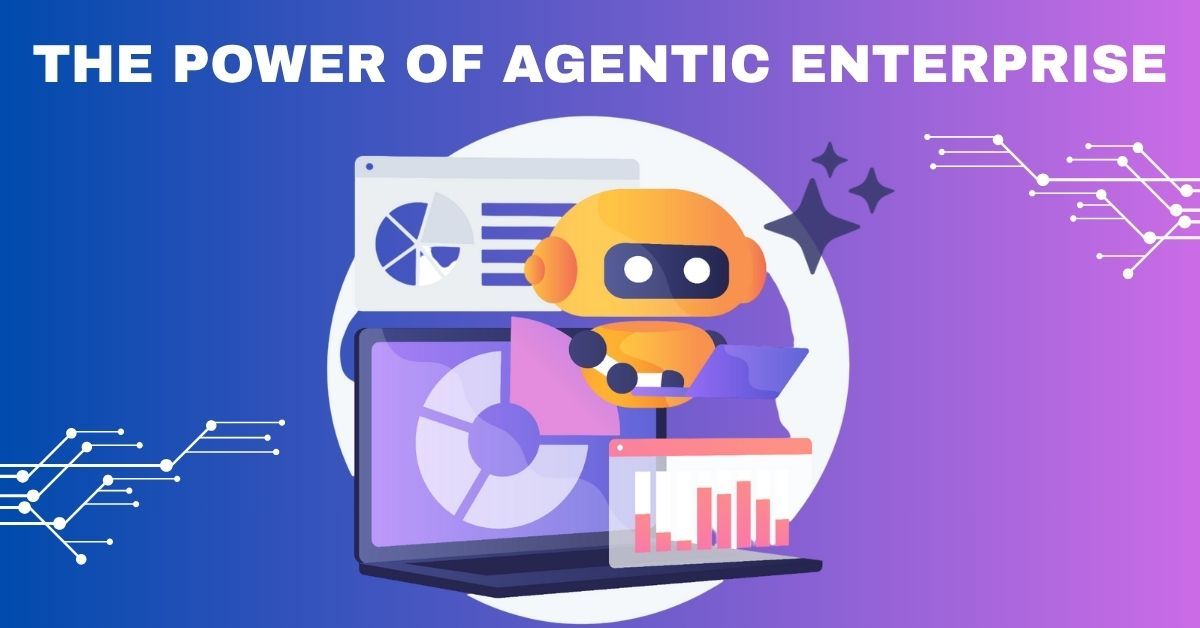
The Agentic Enterprise matters because it empowers organizations to:
- Stay agile and adaptive — respond to market changes in real time through intelligent systems.
- Blend human creativity with AI-driven intelligence — enabling smarter, faster, and more strategic decisions.
- Leverage connected data — unify information across platforms to deliver actionable insights instantly.
- Operate autonomously — allow AI agents to anticipate needs and take proactive actions.
- Drive innovation and growth — create a continuous loop of learning, optimization, and improvement.
By building this intelligent ecosystem, enterprises can evolve from traditional automation to true autonomy transforming how they work, serve customers, and compete in a dynamic digital world.
Now, let’s explore the seven key elements that define this next-generation enterprise and how Salesforce is making it possible.
1. Autonomous AI Agents
- An Agentic Enterprise thrives on the intelligence and independence of autonomous AI agents systems designed to act, learn, and make decisions without constant human direction.
- These agents interpret data in real time, understand business context, and take proactive actions that enhance efficiency and customer experience.
- With Salesforce Agentforce, enterprises can empower AI agents to handle real-world tasks like resolving customer issues in Service Cloud, managing sales operations in Sales Cloud, and creating personalized engagement in Marketing Cloud.
- Unlike traditional automation, these agents don’t just execute commands they adapt continuously, learning from every outcome to deliver smarter, faster, and more precise results.
2. Unified, Intelligent Data Core
- For an Agentic Enterprise, intelligence starts with data — unified, accurate, and accessible in real time. Fragmented systems often create data gaps that limit automation and slow decision-making.
- Salesforce Data Cloud eliminates these barriers by:
- Bringing all enterprise data together into a single, connected platform.
- Maintaining real-time synchronization across every business function.
- Providing AI agents with 360° data visibility for smarter, faster decisions.
- Enabling predictive intelligence through continuous data enrichment.
- When data flows seamlessly, AI doesn’t just react — it anticipates. That’s the foundation of a truly intelligent enterprise.
3. Human-AI Collaboration
- In an Agentic Enterprise, humans and AI work as true partners, combining intelligence, empathy, and efficiency to drive outcomes that neither could achieve alone.
- AI agents take care of the routine and data-driven work analyzing trends, automating responses, and managing workflows while humans bring strategic judgment, creativity, and emotional understanding to every decision.
- With Salesforce innovations like Slack, Einstein Copilot, and Flow, this collaboration happens in real time, breaking silos and empowering teams to work smarter, not harder.
- Together, humans and AI create a harmonious ecosystem one that’s agile, adaptive, and constantly learning from every interaction.
4. Context-Aware Decision Making
- In an Agentic Enterprise, decisions are driven by context, not just data. AI agents interpret signals across every interaction from customer behavior to market trends and take proactive actions that align with business goals.
- With the Salesforce Einstein 1 Platform, these agents understand thewhy behind every action. They analyze intent, anticipate challenges, and respond with precision ensuring every decision is timely, relevant, and impactful.
- For instance, when a loyal customer shows early signs of disengagement, the system can automatically suggest or launch a personalized campaign to re-ignite their interest.
- This level of situational intelligence transforms reactive operations into predictive, adaptive, and customer-centric enterprises.
5. Seamless System Integration
- An Agentic Enterprise thrives on connectivity and collaboration across systems. AI agents can only perform intelligently when data flows freely between every part of the organizationfrom CRM to ERP, marketing to analytics.
- With Salesforce MuleSoft, businesses can integrate all their applications, data, and workflows into a single connected ecosystem. This allows AI agents to:
- Automate multi-step, cross-department processes effortlessly.
- Access real-time data from different platforms to make smarter decisions.
- Eliminate silos and ensure a smooth flow of information across the enterprise.
- By bridging systems and streamlining operations, MuleSoft turns disconnected technologies into a cohesive, intelligent network powering true enterprise autonomy.
6. Trust, Security, and Governance
- In an AI-powered business world, trust and data security are the foundations of every successful enterprise.
- For an organization to truly become agentic, it must ensure that all AI systems work transparently, follow ethical standards, and protect sensitive data at every step.
- Trust, security, and governance build confidence not only within the organization but also among customers and partners.
- When AI-driven decisions are clear and explainable, businesses can maintain accountability and meet compliance requirements without slowing innovation.
- By making trust a core part of their AI strategy, enterprises create a secure environment where automation and intelligence can grow responsibly, ensuring long-term credibility and sustainable success.
7. Continuous Learning and Optimization
- An Agentic Enterprise is never static; it constantly learns, adapts, and improves. Through continuous learning, AI systems refine their performance, understand data patterns better, and make smarter, faster decisions.
- This ongoing improvement helps organizations stay competitive in fast-changing markets. As new data flows in, intelligent systems identify what works best, eliminate inefficiencies, and evolve with changing customer needs and business goals.
- Continuous optimization doesn’t just improve performance — it builds resilience and innovation, helping enterprises stay one step ahead in the era of intelligent automation and data-driven transformation.
Conclusion
The era of Agentic Enterprises marks a defining shift in how organizations think, act, and innovate. It’s not just about integrating AI tool, it’s about building systems that can learn, reason, and act autonomously to achieve business goals with greater precision.
As companies evolve, the ability to empower AI agents to handle complex workflows, deliver proactive insights, and personalize customer experiences will separate the leaders from the rest. Embracing this transformation means building a foundation where technology and human intelligence work in perfect sync creating an enterprise that’s adaptive, predictive, and truly intelligent.
 Neel Thakkar
Neel Thakkar 